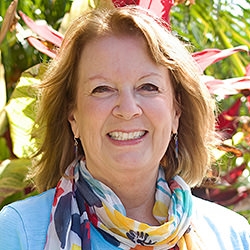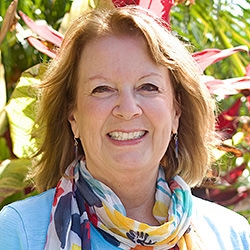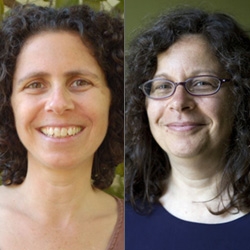

Search Results: ally
-
Trainer Tip: Sometimes you might find yourself in a situation where your need for love is not met. Consider ways in which a partner or friend could meet your need for love. Be sure to request something the other person is capable of doing. Whatever the situation, it is our responsibility to clarify how we can meet our need for love, while also considering the abilities of our loved ones to comply with our requests.
-
Join Mary Mackenzie for this 8 session exploration of the Fundamentals of Nonviolent Communication.
-
If you’ve ever dreaded attending a meeting – or watched in dismay as your group collapses into conflict – know that a methodology known as Convergent Facilitation offers you possible solutions.
It’s based on one simple experience: that people come together at the level of their underlying principles, needs, aspirations, and dreams, not at the level of their surface positions.
Convergent Facilitation is a highly efficient decision-making process developed by Miki Kashtan from the principles of Nonviolent Communication. It enables you to look beneath the surface and find the essence of what’s important to different stakeholders, and bring it together into one set of principles that lead to proposals and ultimately decisions. As a result, it readily produces solutions and decisions that everyone can embrace.
-
How can you remember to use the skills and consciousness of NVC in the heat of the moment?
Jim and Jori Manske will show you how in these recordings from their 2018 course!
They teach that when and how you address the conflicts that emerge in your everyday life matters! By slowing down and considering the state of your resources before engaging in a conflict, you increase the likelihood of discovering a solution that dissolves separateness and enhances the connection and compassion you long for.
-
Dear friends,
Happy April Fool’s Day, which, according to Wikipedia, “is an annual custom on April 1st consisting of practical jokes and hoaxes.” I always think of my Mom on April Fool’s Day. She was mostly a stern person who scorned practical jokes, but on April Fool’s Day, she would play hoaxes on my father. One year, she sewed his boxer shorts’ fly shut. Another year, she reorganized all the drawers in their bedroom. Both of these really made me laugh because it was so out of character coming from her! This April 1st, I do not want to play a trick on anyone, but I do want...
-
Hello,
I’m Iris Bawidamann. When Mary reached out to me asking if I’d write this letter, I sat for some time meditating on what is alive for me and what I want to share with you… This is what surfaced for me… Fear sits with me—on my shoulders, in my chest. A familiar presence I consciously keep in check so it doesn’t take over. Watching global politics, conflicts, and rising polarization, I often feel overwhelmed. The world is shifting.
-
- 3 full-length courses to deepen your empathy practice
- Learn your body’s “language” and how to listen deeply to it
- Quickly reconnect and return to empathic presence when you are triggered
- Enhance your listening skills and experience greater ease and joy in all your interactions
-
There are various ways to be known. Learn how to engage and make clear requests accordingly. This includes getting clear in yourself about what exactly you want known; communicating how important it is to you; sharing examples in your life of being known; requesting and negotiating from the energy of the met need; letting the other person know whether or not the relationship is really sustainable for you if the need goes unmet long-term; and checking the other person's capacity.
-
This video with Jim and Jori Manske explores how to navigate polarizing conversations.
-
When outraged or resigned over polarized issues, pause to ask yourself who may be benefiting from this conflict? What are we not paying attention to that’s even more important? What matters most? Am I being distracted away from something more important? What do I really want? Where can I choose to focus attention and action for the wellbeing of all life on the planet (which is also my wellbeing and the well being of those I love)?
-
If you dread family gatherings because of family tensions, you can find ways to excavate through piles of hardened judgments and hopelessness, build on your inner strength, and engage with family conflicts with open-hearted curiosity, greater presence, and connecting with what really matters to everyone.
-
That is my mantra this year. It came to me when I was headed somewhere to do something that I had wanted to do, and yet I was feeling annoyed about it because traffic was heavy and overwhelming. I then gave myself a few moments of self-empathy where I connected to the deeper needs that were propelling me to do the thing in the first place. In an instant, my annoyance and looming resentment slipped away and I felt happy and relaxed.
-
If you're stuck when making a decision with someone, it's likely that you've skipped hearing and connecting to one another's needs. Slow down and listen for what's really important underneath the content. This allows you to make decisions that are more fulfilling and harmonious.
-
Little negative impacts can become big when left unattended. Watch for things like using a sharp tone, choosing not to share something, going along with something when you don’t really want to, trying to convince your partner, impulsively turning away, shrinking, losing access to parts of yourself, hiding, daydreaming about a different life, and judgmental thoughts. Instead, shift the dynamic: take responsibility, provide empathy, and commit to change.
-
An addiction to something (eg. opioids, fats, sugars, salts, cigarettes, coffee, alcohol, etc.) or a compulsion (eg. gambling, shopping, working, sex or love addictions) is often an unconscious attempt to soothe trauma - fear, loneliness and shame that's frozen in unconscious memory. The addiction or compulsion is a substitute for what we really need. It is an endless craving that's never enough. Read on for more.
-
Try this four step exercise for making connection requests to support understanding, and to learn what effect your words had on the listener. In this exercise you'll choose a situation where you have clarity about what outcome will really work for you (your solution request), but where you imagine your desired outcome may not work for the other person, and/or are not sure there is sufficient connection for mutual trust.
-
Have you ever said 'I'm Sorry' to someone, only for it to leave you feeling disappointed and lacking connection? In some cultures, saying 'I'm sorry' has become too easy and is used for all sorts of situations. Whether it's just to excuse yourself as you pass in front of someone taking a photo, or if you've truly hurt a close friend. So when we really need to communicate regret, how can we do so in a way that acknowledges the situation and the connection?
-
Gratitude keeps us connected to what is working, rather than dwelling on what is not working. As a celebration – gratitude keeps us connected to the natural joy of giving. Receiving gratitude also serves the function of feedback, and lets us know that we are effectively contributing.
-
Notice when you start to defend. Is your body tensing up? Feeling desperate for the other to understand you or your intentions? Find yourself explaining your behavior, giving all the good reasons why you did what you did? Trying to convince the other of your good intentions? If so, ask yourself: “Is this what I want to be doing right now? Is this really helping?” then practice one of these eight options.
-
Listen to this telecourse recording with CNVC Certified Trainer, Alan Rafael Seid, to explore what is meant by social change in the context of NVC, and learn how Nonviolent Communication can be a powerful ally for creating social change.

Quick Links
Subscription Preferences
Stay In Touch!
Looking for ways to keep up with NVC Academy news, get special offers, free resources, or words of inspiration? Here are five ways to stay engaged:



















